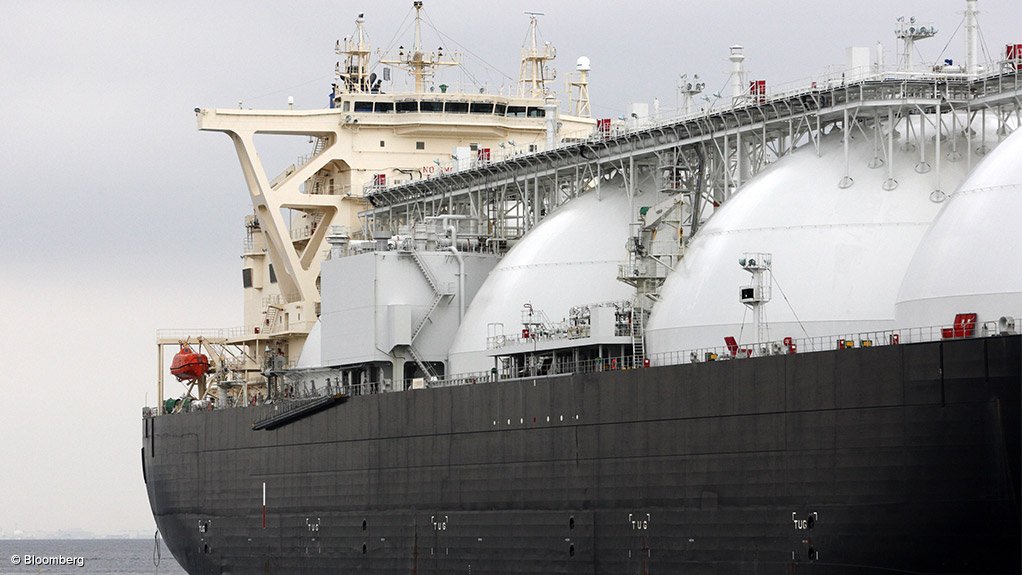
Photo by: Bloomberg
PERTH (miningweekly.com) – The Australian Petroleum Production and Exploration Association (Appea) has warned that Australia’s ambitions to become the largest liquefied natural gas (LNG) producer in the world will fail if the country becomes a high-cost, high-risk investment destination.
Speaking at the first day of the Appea conference in Perth on Monday, Appea chairperson Bruce Lake noted that accumulated policy failures were weighing Australia down, adding unnecessarily to cost, restricting access to resources and creating sovereign risk that was eroding the country’s key competitive advantage, which was a stable operating environment.
“Putting aside the community and political issues inhibiting access to resources, Appea is alarmed by the slow progress of policy reform to support exploration,” Lake said.
“While it is natural that current market conditions have depressed exploration, we have gone beyond a normal cyclical adjustment to a 30-year low. Explorers are sturdy optimists and are not readily intimidated by risk. But a steady escalation of regulatory costs and risks, compounded by investment drying up, has led to an unsustainable situation.”
Lake has also warned of the implications of the current review into the petroleum resources rent tax (PRRT), saying that while a final decision on the PRRT had not been made, an independent review had confirmed the key point that major retrospective tax changes would threaten investment.
He pointed to analysis commissioned by Appea, which claimed that Australia had forgone major revenue by taxing profits, rather than volumes.
“Nevertheless, we are still exposed to the prospect of destructive tax changes, affecting in particular new projects. The review has left open the possibility of cutting deductions for exploration and other important incentives for investment.”
Lake said that as Appea members assessed backfill projects to sustain existing facilities, there was also a risk that tax changes could make projects marginal in the global competition for capital.
Meanwhile, Appea has also condemned export controls suggested by the Australian federal government, through the Australian Domestic Gas Supply Mechanism, introduced in April this year, and expected to come into effect in July.
Under the new scheme, if an exporter is not a net contributor to the domestic market, meaning, they draw more from the market than they put in, they will be required to outline how they will fill the shortfall of domestic gas as part of their overall production.
“At a time when we may require as much as A$50-billion to fund upstream development in eastern Australia, it is counter-productive to create sovereign risk,” Lake said, noting that the export controls had damaged Australia’s international reputation as a low-risk destination for investors.
“Appea has insisted that only genuine policy reforms to open up new acreage, strip out unnecessary regulatory costs and improve the transparency of the market will deliver a sustainable solution,” Lake added.